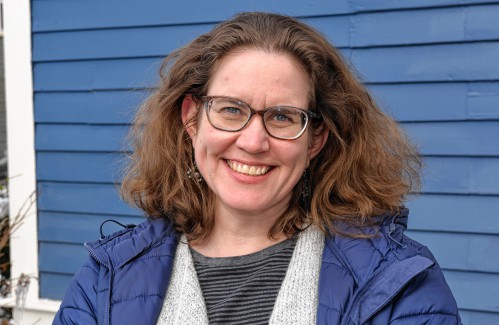Published: 4/15/2021 3:39:02 PM
GREENFIELD — The Franklin Regional Council of Governments’ Community Health Improvement Plan (CHIP) is moving full steam ahead with its most recent three-year plan, and is coming up with possible solutions to three health issues facing some county residents.
The CHIP identifies priority health needs and disparities and the factors that contribute to them, and builds on strengths by identifying current resources in the community to address those issues. It also identifies and supports the implementation of strategies to address health needs, and works to reduce gaps and duplications in services and increase collective abilities to secure resources.
Steering Committee members include heads of Baystate Franklin Medical Center, Clinical & Support Options (CSO), Communities That Care Coalition, Community Action Pioneer Valley, Community Health Center of Franklin County, Franklin County Mass in Motion, FRCOG, LifePath, Franklin Regional Housing and Redevelopment Authority, North Quabbin Community Coalition, the Opioid Task Force of Franklin County and North Quabbin, and United Way of Franklin County.
Three working groups were chosen for this three-year cycle ending in 2023, and those groups chose three priorities based on data collection and surveys: reducing rates of anxiety and depression, youth substance abuse and Type 2 diabetes. In 2023, three new priorities will be chosen.
CHIP Project Coordinator Jen Audley said an important factor in the work is health equity.
“We’ll develop a multi-year plan that sets priorities for the region,” she said. “These will be action plans for how all Franklin County residents can live long, healthy lives. We’re also looking at the quality of people’s lives — social and economic factors.”
Audley said an important piece is the Complete Streets Funding Program through the Massachusetts Department of Transportation. A Complete Street is one that provides safe and accessible options for all travel modes, including walking, biking, transit and vehicles, for people of all ages and abilities.
Rachel Stoler, Beth Giannini and Maureen Mullaney, all with the FRCOG and heading the Type 2 diabetes group, said there is a game plan to create spaces that encourage walking and activity so that people either prevent Type 2 diabetes or work to make it better if they already have it.
Giannini said Complete Streets projects make streets better for everyone, and cities and towns across the state are lucky because the state is helpful in creating those types of environments.
On Friday, April 30, at 9 a.m., FRCOG will hold the 2021 County Health Rankings & CHIP Legislative Priority Release online via Zoom. For more information, visit bit.ly/32c6D99 or contact FRCOG Director of Community Services Phoebe Walker at 413-774-3167, ext. 102 or walker@frcog.org.
For more information about CHIP, visit bit.ly/3dJYRIH, or contact Audley at 413-774-3167, ext. 126 or jaudley@frcog.org.
Reach Anita Fritz at 413-772-9591 or afritz@recorder.com.
